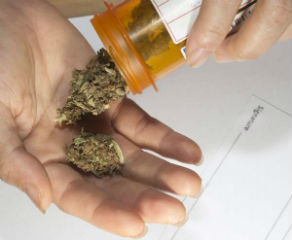
As more states adopt laws permitting the consumption of marijuana for medicinal purposes (or, as with Colorado, consumption for general purposes), a touchy question emerges-will the law apply to minors who suffer from debilitating illnesses? And further, will the minors be able to take their prescribed medicinal marijuana at school, many of which are ruled under the old Drug Free Zone mandates?
The Larc School in Bellmawr answers those questions by being the first reported school in the country to allow minors to take edible medicinal marijuana in designated areas on school property, under adult supervision. The decision was based in part on one of the students, who was autistic and suffered from potentially life-threatening epilepsy. When her family discovered that cannabis oil proved to be more effective in preventing the seizures than traditional pharmaceuticals, they ran into a string of legal obstacles, since the school was afraid that allowing the drugs onto the campus would violate federal laws. Forced to choose between a full, uninterrupted day at school and the ability to take the medication, the student’s parents decided that their best solution would be to cut the school day short so that their child could take her dosages of cannabis oil at home.
A less restrictive resolution appeared when Governor Christie signed Bill A4587, allowing children with developmental disabilities to consume cannabis oil or another edible cannabis product for medical purposes. Students using the program must have identification cards (stating that they have been officially diagnosed with a developmental disability) and be supervised while taking their prescription in a private room. The bill only applies to edible marijuana specifically for the treatment of the recorded developmental disability. While parents likely want to remove the stigma attached to the cannabis products by having them treated like any other prescription medication, most commentators agree that the law is a step in the right direction.
Many more schools across the country are likely to face similar dilemmas, as research is conducted and medical professionals concede that marijuana may have additional benefits for those suffering from debilitating diseases and disorders. The choice between doing what’s best for a sick child and complying with anti-drug laws that may not have considered medical ramifications is a tough one, which parents are trying hard not to have to make. Loree Varella, Rutgers School of Law Newark candidate for a JD degree in May 2016 collaborated on this blog. She is Associate Editor of the Rutgers Computer and Technology Law Journal and Managing Research Editor of that publication.

